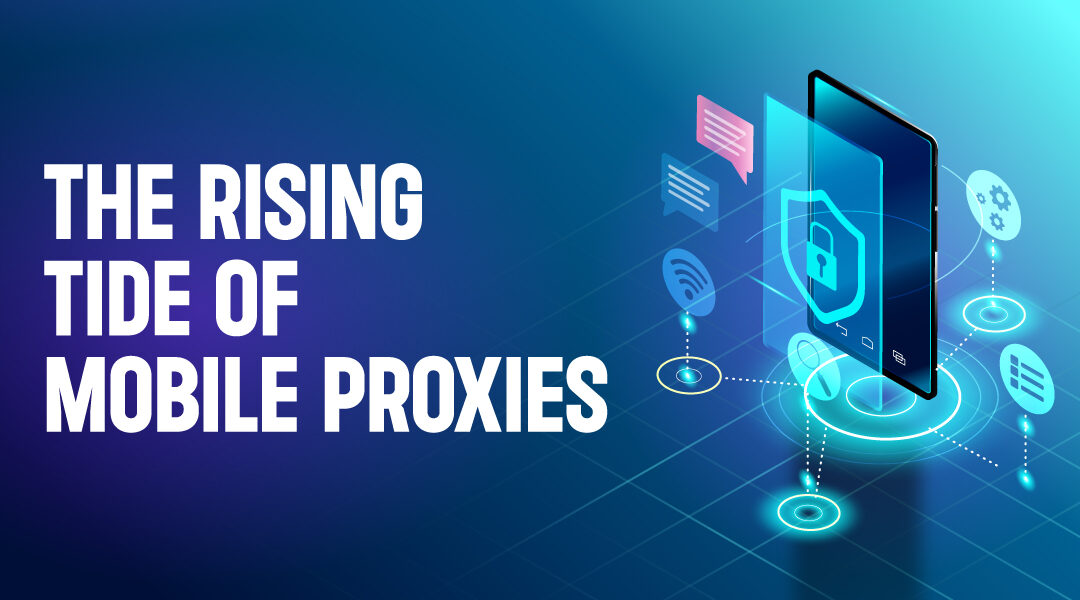In the world of digital marketing, web scraping, and online privacy, proxies play a crucial role in safeguarding users’ identities and ensuring access to valuable online resources. Among the various types of proxies available, Proxy checker online have emerged as one of the most powerful and flexible tools. This article delves into the concept of mobile proxies, their applications, benefits, and why they are gaining traction in today’s digital ecosystem.
What Are Mobile Proxies?
A mobile proxy is a type of proxy server that uses mobile devices (typically smartphones) as the intermediary between a user and the internet. These proxies route your internet traffic through a mobile device that is connected to a cellular network, often in a particular geographic region, to mask the user’s original IP address.
Mobile proxies are unique because the IP addresses they provide are mobile IPs, which are different from traditional desktop or data center IPs. Mobile IPs are issued by cellular carriers, making them appear as if they are coming from a real mobile user rather than a server farm or data center. This gives mobile proxies a significant edge in terms of anonymity and reliability.
How Mobile Proxies Work
When you use a mobile proxy, your internet traffic is routed through a mobile device, which could be connected to a 3G, 4G, or 5G network. The process works like this:
- Request Routing: You make a request to access a website or service.
- Proxy Assignment: The mobile proxy provider assigns you a mobile IP address from a pool of IPs. These IPs are associated with real mobile devices on cellular networks.
- Data Exchange: Your request is sent through this mobile IP address, effectively masking your real IP address.
- Website Access: The website you are visiting sees the mobile IP as the source of the request, making it appear as if the request is coming from a mobile device on a cellular network.
Key Benefits of Mobile Proxies
- Higher Anonymity and Privacy: One of the major advantages of mobile proxies is the increased anonymity they provide. Since mobile IPs are issued by telecom providers and not typically associated with servers, they are harder to detect as proxies. This makes it difficult for websites to block or flag traffic coming from mobile proxies.
- Bypass Geolocation Restrictions: Mobile proxies can be extremely useful for bypassing geographic restrictions. Whether you’re accessing services that are exclusive to certain regions or trying to avoid location-based restrictions, mobile proxies can provide an IP address from any part of the world, allowing users to appear as though they are browsing from a different location.
- Avoid IP Bans and CAPTCHAs: Many online services and websites use automated systems to detect unusual activity, such as rapid, repeated requests or web scraping. Mobile proxies help mitigate these risks because they are often associated with real mobile users, making them less likely to trigger IP bans, CAPTCHAs, or other anti-bot measures.
- Improved Success Rate for Web Scraping: Web scraping, which involves extracting data from websites, can be hampered by IP bans and rate-limiting mechanisms. With mobile proxies, scraping becomes much more effective since each request can come from a different mobile IP address, preventing detection and blocking.
- Simulate Mobile User Traffic: Mobile proxies are ideal for businesses or individuals seeking to test mobile apps, websites, or advertisements. By using mobile proxies, you can simulate real mobile traffic and monitor how your mobile website or app behaves for users in different locations.
Use Cases for Mobile Proxies
- Ad Verification: Advertisers and marketers use mobile proxies to verify that their ads are being shown to the right audience and in the correct location. This ensures that ad campaigns run smoothly, and advertisers can detect any fraudulent activity.
- SEO Monitoring: Search engine optimization (SEO) professionals use mobile proxies to monitor search engine rankings and track competitors’ performance across different regions without risking penalties for too many requests from a single IP address.
- Social Media Management: Social media marketers and influencers can use mobile proxies to manage multiple accounts without the risk of getting banned or flagged. Using mobile proxies helps simulate human-like browsing behavior, reducing the likelihood of detection by social media platforms.
- E-commerce: Online retailers use mobile proxies to gain competitive intelligence by monitoring pricing, availability, and stock levels on competitors’ websites. This data is critical in making informed business decisions and staying competitive in fast-moving markets.
- Ticketing and Sneaker Bots: Users also employ mobile proxies for high-demand purchases, like concert tickets or limited-edition sneakers. With mobile proxies, individuals can make multiple attempts at purchasing without triggering security mechanisms that typically block or slow down bots.
Mobile Proxies vs. Residential and Data Center Proxies
While mobile proxies offer numerous advantages, it’s essential to understand how they compare with residential and data center proxies.
- Mobile Proxies: These proxies are connected to real mobile networks and are the most reliable in terms of bypassing restrictions and ensuring high anonymity. They are perfect for simulating mobile traffic.
- Residential Proxies: Residential proxies use IP addresses assigned by internet service providers (ISPs). While they are often harder to detect than data center proxies, they are still more easily identifiable than mobile proxies.
- Data Center Proxies: These proxies come from data centers and are often cheaper but easily detectable and blocked by websites. They are not tied to real-world devices, which makes them more vulnerable to detection.
Choosing the Right Mobile Proxy Provider
When selecting a mobile proxy provider, consider the following factors:
- IP Pool Size: A larger pool of mobile IP addresses allows for more flexibility and a higher success rate in avoiding blocks.
- Geographic Locations: Ensure that the provider offers IPs from the regions you require.
- Speed and Reliability: Mobile proxies should offer fast and reliable connections, especially for tasks such as scraping or ad verification.
- Cost: Mobile proxies tend to be more expensive than data center proxies, so balance your budget with your specific needs.
Conclusion
Mobile proxies are powerful tools for anyone looking to enhance online privacy, bypass geographic restrictions, or improve web scraping efforts. With their ability to simulate real mobile device traffic and provide a high level of anonymity, they offer distinct advantages over other proxy types. Whether for ad verification, SEO monitoring, or even social media management, mobile proxies are an essential part of the digital toolkit in today’s increasingly connected world. However, users should carefully consider their needs and select a provider that offers the best performance and value for their specific use case.





